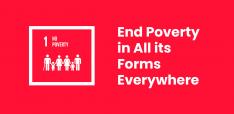The Post-2015 Consensus: A Data Revolution?
Are we willing to pay $254 billion or almost two years of the next fifteen years of development aid, to get better data? The Post-2015 Consensus' fifth set of papers is focuses on what it might mean and cost to take data for development seriously in the post-2015 development agenda.
For the last decade and a half, the world has made a few, smart promises with the so-called Millennium Development Goals: half the proportion of hunger and poverty, get all kids in school and dramatically reduce child mortality. We have definitely seen a huge move towards success, although not all promises will be achieved.
What is somewhat surprising, however, is that we have fairly little information about what exactly we achieved.
Most of the attention on the post-2015 development agenda is on the high-profile issues like health, education, food, water and environment. But we also need to set aside resources to measure how well we tackle all these issues, and that has real costs. How much this will cost and how much the international community can justify spending in this way is the important topic covered by Professor Morten Jerven in his paper for the Copenhagen Consensus’ Post-2015 Consensus Project.
Jerven’s paper is the first to estimate the cost of the United Nation’s High Level Panel’s so called data revolution. The result of Jerven’s grounding breaking study: $1.5billion per target globally over fifteen years.
Which begs the question: How much are we willing to spend on measuring the post-2015 development agenda?
The real problem is that the next set of targets is growing ever larger. A high-level panel with PM David Cameron from the UK, President Yudhoyono from Indonesia and President Sirleaf from Liberia along with leaders from civil society and the private sector suggested 59 targets and advocated building “better data-collection systems, especially in developing countries.”
And just a couple of months ago, 70 UN ambassadors in the Open Working Group concluded to propose a vertiginous 169 targets. One of these many targets argued that by 2020 the world should “increase significantly the availability of high-quality, timely and reliable data disaggregated by income, gender, age, race, ethnicity, migratory status, disability, geographic location and other characteristics relevant in national contexts.”
However, one interesting point of comparison is looking at what industrialized countries spend on statistics. For example, both the Norwegian and British governments have official statistical services, which cost about 0.2% of GDP. Using this figure as a measure of willingness to pay would suggest that we should aim at four SDG targets, which could be properly monitored, rather than 169.
Doing even a minimum data collection for all these 169 targets, Jerven estimates will cost at least $254 billion, or almost twice the entire global annual development budget.
And this is a very low estimate, since it does not take account of basic administrative data gathering by national governments. Neither does it include costs for all the household surveys, which are recommended, since costs for these were impossible to obtain. And countries where data has not yet been collected will likely prove even costlier. Remember, six of 49 countries in sub-Saharan Africa have never had a household survey and only 28 have had one in the last seven years.
You can read the all the reports on the United Nations’ "data revolution" here. You will also find the entire Data for Development series of papers. Morten Jerven, Associate Professor at Simon Fraser University writes the main report, peer-reviewed in perspective papers by Deborah Johnston of University of London, School of Oriental and African Studies, and Gabriel Demombynes, Senior Economist at the World Bank and Justin Sandefur, Research Fellow at the Center for Global Development. Additionally, NGOs and stakeholders such as UNDP and Overseas Development Institute present viewpoint papers concerning Jerven’s analysis.
In a recent follow up to his paper Jerven has released an op-ed entitled “More or Better Development Data? Yes, Please…” which he defends his cost-benefit analysis of the data revolution.
“We really have to make a choice between 'measure everything wrong all the time' or 'measure something correctly some of the time'. Taking the value of data for development seriously means being aware of its costs, its opportunity costs and gauging its trade-offs.” - Morten Jerven.


